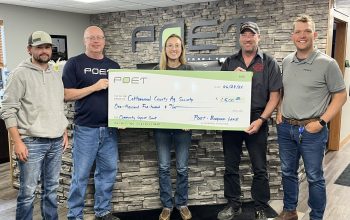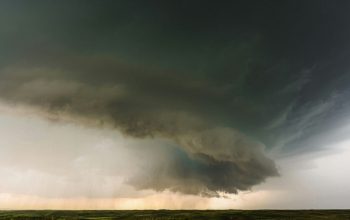In Pixar’s classic family film Cars, in which the world is populated by self aware vehicles instead of people, the tractors are a little on the dumb side. As the Pixar wiki page of Fandom.com puts it, they are “certainly not the brightest vehicles, as they fall on their backs and make a curious sound when they have been startled.” Which describes the scene where they are introduced, when lead characters Mater (played by Larry the Cable Guy) and Montgomery “Lighting” McQueen (played by Owen Wilson) go “tractor tipping”.
But the tractors which John Deere just introduced at the 2022 CES (Consumer Electronics Show) in Las Vegas are much, much smarter than their cartoon counterparts; and farm workers may find them much less lovable. Some current tractors can operate semi-autonomously using pre-programmed routes and the Global Positioning System, like a big GPS tractor version of an old 1979 Milton Bradley Big Trak toy. But they still require the farmer to ride in the cab to navigate around obstacles. Deere’s new 8R tractors, however, are fully autonomous, and guided not just by GPS, but also by artificial intelligence.
The 8R sees its environment with six pairs of stereo cameras and, like the android character Data from Star Trek the Next Generation, analyzes it using algorithms running on a neural network. Meaning it can navigate and operate on it’s own. Not only doesn’t it need instructions from a farmer to find its way to the field, it can also plow and sow seeds on its own. It avoids obstacles without help, and analyzes the soil and other field factors as it works.
Although no longer needed in the cab of the tractor, the farmer can access the data the tractor gathers and assign it new tasks using a smartphone app. Which may seem fine at first thought, but raises concerns among some about the lack of necessity of the human farmer in the farm operation. And their level of knowledge and control over their own farm.
Kevin Kenny is an agricultural engineer who has been outspoken in the “right to repair” debate, in which Deere and other “big tractor” companies have already placed controversial limits on the ability of farmers who purchase their expensive machines to repair or alter them, rather than buy new replacements, or replacement parts. Kenny worries that AI driven autonomy in farm equipment could hobble farmers, limiting their ability to make important decisions if they don’t have access to the data that Deere collects, and to control their farm if they have a limited set of choices in an app.
Kenny has reason to be concerned. In a 2015 filing with the U.S. Copyright office, Deere asserted that farmers who often pay as much as three quarters of a million dollars or more for one of their tractors still don’t have the right to repair them, or alter them to suit their needs. Arguing that farmers were not, in general, sophisticated enough in a technological engineering sense to be tinkering with their machines. And therefore allowing them to do so would be too great a risk. Which puts Deere’s opposition to letting farmers run their own farms their own way, and to sharing the full set of data with them, on the record.
Deere has been at the forefront of farming technology since it first helped mechanize the industry in 1837 with the first steel plow to turn a profit. And Jahmy Hindman, Deere’s Chief Technology Officer, thinks this is the company’s most transformative innovation since. “It’s a monumental shift,” Hindman told Wired magazine, “I think it’s every bit as big as the transition from horse to tractor.”
Deere has not said how much their new robot tractor will cost, but Hindman said the company was considering many possibilities, including a subscription plan. Which plays into the fears of “right to repair” activists like Kenny, who said that Deere could reach the point where the company could replace the farmers, and deploy their auto-farming tractors to run massive “robotic farms”.
And while Hindman isn’t shy on the question of whether this now takes the farmer more out of the farming equation, telling Wired “We’ve now figured out how to decouple the labor from the machine,” he still contends that Kenny and farmers shouldn’t worry. The new tractor addresses the agricultural labor shortage, he said, and would benefit farmers as it improves and Deere rolls out new functions. Adding that farmers could opt out of sharing data.
But those new innovations could well rely on sharing the data. One such new function that Deere likely has in the works is the ability for the tractor to identify weeds and other unwelcome plants in a field and douse them in a precision blast of herbicide. Hinted at by Deere’s 2017 305 million dollar buyout of Blue River Technology, which makes robots with that capability. Which could lower a farm's use of pesticides and herbicides, as the technology advances, saving costs and reducing pollution while improving effectiveness. But such a function might not work if Deere wasn’t receiving data, given that it now owns the technology that would underpin it.
And the flip side of that concern is whether Deere could opt out of sharing the data with the farmer, unless paid extra. Christopher Kitts, a professor in field robotics at Santa Clara University who studies agricultural automation, told Wired that the data collected by tractors like the 8R could be so useful in farming that Deere could charge a premium for access to it. Which raises questions about whether the benefits of the tractor, and the profits the data it collects could lead to, might be financially out of reach to the small farmer.
“I’m all for innovation, and I think John Deere is a helluva company, but they’re trying to be the Facebook of farming,” Kenny said, referencing the big tech giant whose use of big data has been controversial.
But Deere’s preparations for this innovation resemble more closely the work of another start-up to megacorp success story of the new millennium, Tesla. Like Tesla, Deere has been harvesting data from its current model vehicles for years, and using it to tweak and improve it’s self-driving technology. But in Deere’s case, the question seems to be less who, if anyone, will be driving the vehicle, than who will ultimately be running the farm: the farmer, or the executives at John Deere?
Send your tips, comments, and corrections to news@eaglegroveeagle.com.







